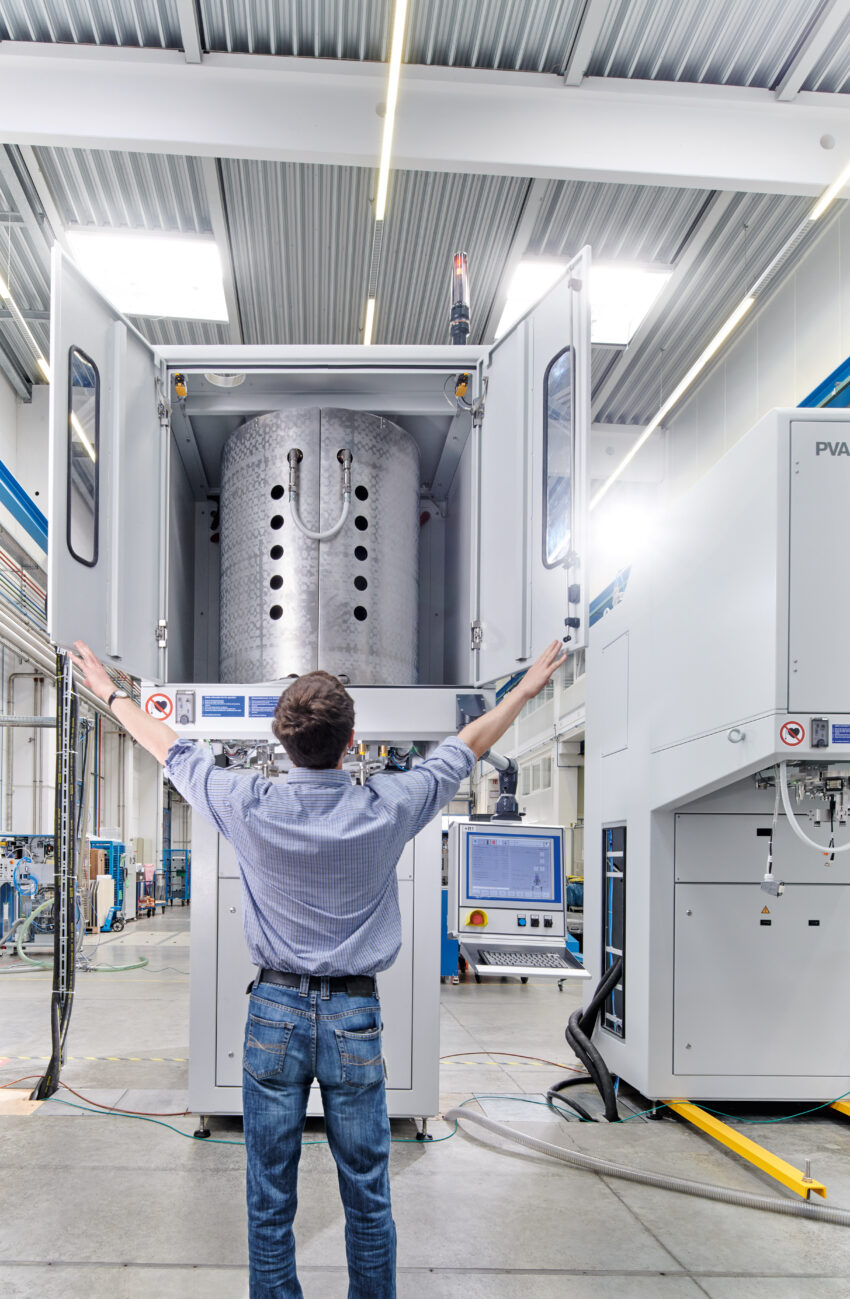Due to the complexity of growing quality silicon carbide (SiC) crystals, manufacturers require specialized, customizable solutions for manufacturers’ unique IP and process requirements.
There is an imperative to rapidly expand the production of SiC crystals to serve the current and future generations of electric vehicles (EVs) and advanced electronic devices.
As the demand continues to rise, manufacturers are encountering the task of rapidly expanding SiC crystal production to unprecedented levels. SiC production is time-consuming; growing a single crystal ingot, also known as a boule, can take a few weeks to produce. To produce the required large quantities of ultra-pure SiC crystals, specialized growing systems are often grouped in sets of tens or hundreds, similar to the design and construction of “server farms” that consolidate data for large organizations.
Producers of SiC growing systems must be adaptable to customize and protect the unique system design elements required to meet each customer’s individual intellectual property (IP) requirements since specific crystal growing techniques are closely guarded secrets.
“Custom PVT systems are available that ensure protection and exclusivity of their intellectual property. These tools are customized to meet manufacturers’ specific requirements, necessitating the utilization of premium engineering capabilities,” says Frank Ried, Project Manager, PVA Crystal Growing Systems GmbH, a subsidiary of PVA TePla Group.
PVA Crystal Growing Systems develop and construct machinery for several industrial methods of producing ultra-pure monocrystals, including Physical Vapor Transport, Cz (Czochralski), FZ (Float Zone), and VGF (Vertical Gradient Freeze). The systems grow silicon carbide, silicon, germanium, calcium fluoride, and compound semiconductors.
According to Ried, the widely accepted technique for monocrystalline silicon carbide growth involves sublimation growth with a seed crystal, which is commonly referred to as Physical Vapor Transport (PVT). In this process, SiC source material, usually SiC powder, is transferred to the gaseous phase by sublimation at temperatures from 1,800–2,600°C. A SiC single crystal is subsequently formed from the gaseous components at a given seed substrate.
The fourth-generation crystal growing system developed by PVA, known as SiCma, has been meticulously designed to meet the specific requirements in the production of silicon carbide. This state-of-the-art system boasts the capability to produce monocrystal boules of SiC in diameters ranging from 4 to 8 inches, subsequently used for wafer fabrication.
For manufacturers, working with an expert provider of crystal growing systems that can meet their production demands and tailor the equipment to their evolving needs is essential now and in the future. Manufacturers who partner with a reputable OEM that can customize crystal growing systems and prioritize intellectual property protection will secure a competitive advantage in this rapidly expanding market.
For more information, contact Bill Marsh at PVA TePla America via phone 951-371-2500, toll free 800-527-5667, email at sales@pvateplaamerica.com, or visit www.pvateplaamerica.com.

